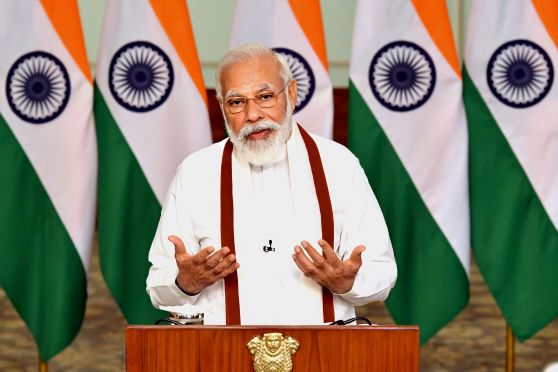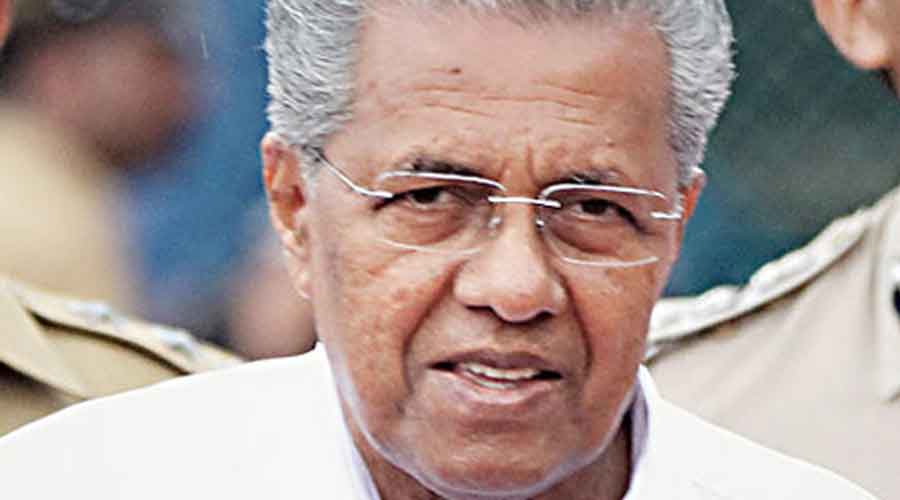Over 100 retired bureaucrats have slammed the Narendra Modi government’s proposed amendment to the deputation rules guiding the Indian Administrative Service, saying such a move is “arbitrary, unreasonable and unconstitutional” and another instance of concentration of power at the Centre.
The retired bureaucrats from the Constitutional Conduct Group said in a statement on Thursday: “We are… of the view that the proposed set of amendments to the cadre rules of the three AIS (All India Services) are arbitrary, unreasonable and unconstitutional. They interfere with the basic structure of the Constitution of India as a Union of States and can cause irreparable damage to the one institution which Sardar Patel held as being the most critical to the unity of the country.”
“It is abundantly evident that the proposed amendments have not been thought through and are being rushed through without adequate federal consultation in a manner which shows the present establishment’s by now familiar penchant for arbitrary exercise of centralised power,” it added.
The non-BJP chief ministers of Bengal, Kerala, Jharkhand, Chhattisgarh and Rajasthan have already sent protest letters to Modi on the plan to introduce amendments to the IAS (Cadre) Rules, 1954, for deputation of officers from state governments.
The proposed amendments to the cadre rules seek to give unilateral powers to the Union government to pick and choose any AIS officer to be withdrawn from a state and brought to the Centre without the concurrence of either the officer or the state government, the statement pointed out.
“While this change in the rules may appear to be a minor, technical one, it, in fact, hits at the very core of the constitutional scheme of Indian federalism,” the retired bureaucrats said.
The signatories highlighted that in a federal structure, the Union and the states exist as distinct and separate entities although they work in tandem to subserve common constitutional objectives.
The AIS — the Indian Administrative Service (IAS), Indian Police Service (IPS) and the Indian Forest Service (IFoS) — constitute the administrative framework of this unique relationship between the two levels of government and give it stability and balance, they pointed out.
“Maintaining this balance is critical to good governance,” the statement said.
The former bureaucrats said the creation of the AIS was covenanted in the main body of the Constitution, “making them creatures not of the executive but of the Constitution itself”.
This is a feature unique to the AIS and distinguishes them from other central and state services, the retired bureaucrats said.
For Sardar Vallabhbhai Patel, this feature was critical to guaranteeing members of the AIS independence and ability to speak their mind. Their constitutional status and independence would give them the security to function as a protective ring around the Constitution, the statement said.
“It was not merely that Constitutional protection was available to members of the Service but that they were expected to be the ones protecting the Constitution from the vicissitudes of politics and centrifugal forces, thereby giving governance stability and endurance,” the retired bureaucrats said.
The Constitution, they said, places the AIS in the middle of a federal, dual polity so that there is a sense of shared ownership between the Union and the states.
Whereas recruitment is done by the Centre on the recommendations of the Union Public Service Commission and the AIS are a part of the Union List, all members of these services are divided into state-based cadres, with the Union borrowing officers from the state cadres. Each member treats the cadre of his/ her allotment as the “parent” cadre to which he/ she belongs.
“The allotted State is not just a region where an officer spends a substantial part of his/ her career, it is a ‘parent’ that nurtures and grooms his/ her career. The primary career management role is performed by the State and it is to the State that each officer reverts after a spell of central posting. This is a unique relationship and establishes a strong connection between an officer and the parent State cadre,” the statement said.
When the Union borrows an officer for postings, he or she brings to the assignment the perspective gained in the state, the retired bureaucrats said.
“The proposed amendment to the Cadre Rules fundamentally alters this relationship and makes a mockery of the delicate federal balance that the AIS are designed to maintain,” the statement said.
“The whole idea of the Centre not having a ‘cadre’ of its own but having to ‘borrow’ the services of an officer for specific periods at key senior management levels is destroyed if the State as a ‘lender’ has no authority on what it lends and on what terms and conditions, but the borrower, on the other hand, exercises superior rights over the lender. This is turning the federal arrangement upside down,” the statement added.
It listed the implications and long-term consequences of the Centre’s proposed move.
⚫ The shifting of the balance disproportionately in favour of the Union in matters of cadre deployment and management will effectively convert the AIS into three more central services.
⚫ It is possible that AIS officers may view the interests of the state as secondary and subordinate to the Centre and to the political regime in power there. AIS officers working in the states will be reluctant to take any decision or action against the wishes of the political party in power at the Centre for fear of being summarily transferred to the Centre and harassed there. This will undermine the ability of the state governments to implement their policies and stand up against any arbitrary diktats of the Centre.
⚫ There is a likelihood that the states will consider the State Civil Services as more amenable to them and may treat AIS officers with suspicion and distrust.
⚫ States may choose to reduce cadre posts meant exclusively for the AIS and open them up to the state services, thereby seriously undermining B.R. Ambedkar’s intention of maintaining uniformly high administrative standards across the country, free of any regional biases.
⚫ If the AIS begin to play a lesser role in the states, it will also affect the unifying role they play in the context of federal diversity — social, economic and cultural (including administrative culture).
⚫ It will allow greater scope for abuse of power by the Union government so that whenever it is unhappy with the state government it can target AIS officers in strategic posts (for example the chief secretary, home secretary, director-general of police, principal chief conservator of forests, district magistrate and superintendent of police), withdraw them from their posts and place them elsewhere. This will derail the functioning of the state administrative apparatus.
⚫ The introduction of an element of compulsion in cadre management and doing away with a robust and healthy system of federal consultation, consent/ concurrence and coordination will severely impact the morale of the AIS. This will eventually make careers in the AIS unattractive.












